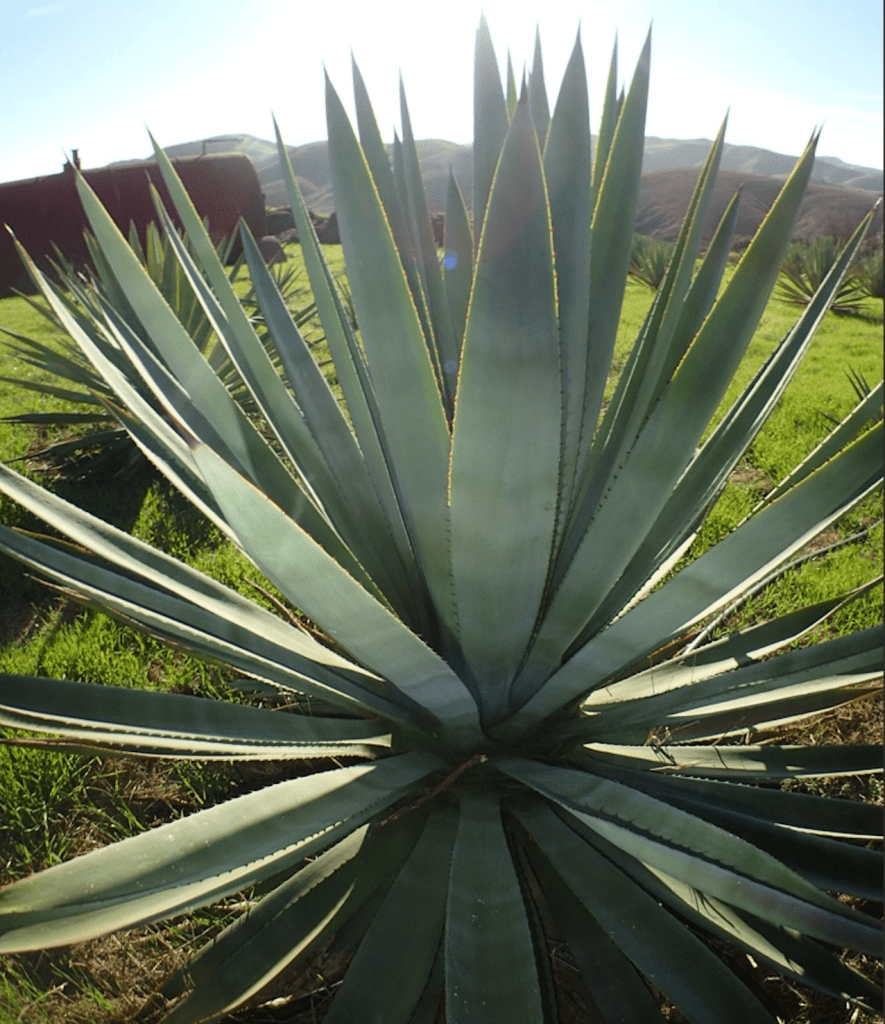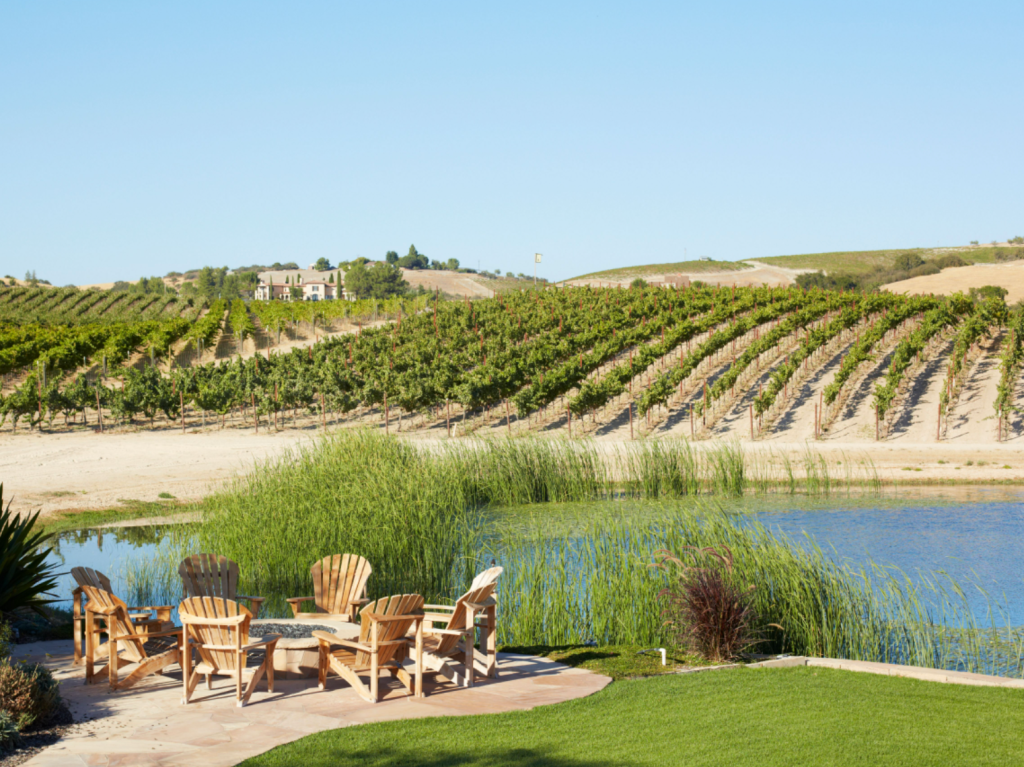This edition of Full Belly Files was originally emailed to subscribers on April 15, 2022. To receive Matt Kettmann’s food newsletter in your inbox each Friday, sign up at independent.com/newsletters.
In 2019, I wrote a cover story about how La Paloma Ranch along the Gaviota Coast was growing agave in order to turn the drought-tolerant, firebreak-ready plant into booze. I was able to participate in one of their first harvests, and even delivered one of the plucked pinas down to Ventura Spirits, which was turning the crop into an agave spirit. (I also wrote about those results here.)
There’s been a smattering of news since then that I see on occasion, particularly in parts of Northern California, where Craig Reynolds is considered a sort of godfather in this movement toward a truly domestic agave spirit industry. “It’s been pretty exciting,” said Reynolds to me on the phone this week. “Many more people are now putting agave in the ground throughout the state.” They’re typically buying plants straight from Reynolds or from Doug Richardson of Drylands Farming Company in Carpinteria.
Recently, Reynolds’ own agaves of the tequilana variety were turned into liquor by Venus Spirits in Santa Cruz, Ventura Spirits, and Shelter Distilling in Mammoth Lakes. And there’s another release expected soon from Jano Spirits in Napa County, which made a batch from the americana agave variety grown by Reynolds’ neighbor.

These batches are small, usually between just 250 to 450 bottles, but they sell out quickly, typically straight through the distilleries’ tasting rooms and websites. The hope is that these direct sales will help distilleries invest further in the specialized equipment needed for processing agave, which are more challenging that the typical fruits and grains used in distillation.
Reynolds is also leading the way on agave’s organizational and legislative fronts. Less than two months ago, he spearheaded the creation of the California Agave Council, a nonprofit trade group with lobbying power that includes about 10 distillers and two dozen growers. Right now, the council is shepherding a piece of legislation through Sacramento that will establish a statewide standard for anything that’s labeled “California agave spirit.”
“It must be 100 percent California-grown, without flavor or coloring additives,” said Reynolds. “Those have become a consumer concern because tequila is allowed to use additives without disclosure.”
In fact, anything federally recognized by the American government’s Tax & Trade Bureau, or TTB, as tequila (which can only come from Mexico) or an agave spirit is allowed to have a wide array of additives, including up to 49 percent of a different sugar base. So that tequila or agave spirit in your cabinet may actually be only 51 percent distilled from agave, with another 49 percent coming from sugar cane or corn sugar.
“There’s nothing wrong about that, other than people in some cases are not aware that’s the case,” said Reynolds, who explained that the TTB has approved 150 new agave spirit labels by American producers over the past couple years.
Mezcal, on the other hand, must be 100 percent mezcal to be labeled as such, so that’s what Reynolds wants California growers to adhere to. “We basically chose the highest standard you could have,” said Reynolds. “We just want to make that clear from the beginning so that we can establish and maintain a reputation for quality.”
The bill has bipartisan support, clearing its first committee earlier this month with a unanimous 19-0 vote. “There’s no opposition,” said Reynolds. “We feel like the chances are very good that this can be approved this summer.”
Down here in Santa Barbara, progress continues as well. Berkeley “Augie” Johnson still tends to his crop in Montecito, and is behind a tequila bar that’s set to open soon on State Street. Also in Montecito, Mark Peterson and Ane Diaz run an 11-acre agave ranch called Rancho del Sol, which Reynolds described in the latest California Agave Council newsletter. Since 2019, they’ve been growing salmiana, salmiana ferox, arroqueño, tobala, americana, guadalajarana, papalome, desmetiana, karwinskii, coyote, and tequilana varieties of agave, intent on using the plants for distillation upon harvest.
Sign up for Indy Today to receive fresh news from Independent.com, in your inbox, every morning.
The folks at La Paloma are still active as well, reports co-owner Eric Hvoboll. Their first planting in 2015 consisted of 2,000 tequilana and 200 mapisaga, followed by 1,400 in 2016. By 2021, the tequilana was all harvested, with Ventura Spirits making multiple batches over the years. The mapisaga still isn’t ready yet, but they just planted another 700 tequilana pups about a month ago. They’re actively removing nearly 900 avocado trees that were burned by the 2016 Sherpa Fire, and plan to plant several thousand more tequilana pups in the next few months.
Hvolboll is excited that Ventura Spirits is now handling Reynolds’ California agave spirit too. “The more growers and distillers the better!” he said.
Reynolds believes that the pandemic only made people more interested in buying beverages from locally grown crops, a category for which agave is well-suited. “There’s demand for locally grown beverages,” he said. “The pandemic also heightened people’s sense of food security and not relying on international supply chains for food and beverages. That’s contributed to this.”
$20 Off Code for Paso Wine Festival

I’ll be up at Hospice du Rhône in Paso Robles next Thursday to Saturday, but that’s just one of many places to enjoy the region’s wine in the months to come. The next big ticket item is the Paso Wine Fest, which returns after a two-year hiatus on May 21, with a brand new program taking over the Paso Robles Event Center.
The fest features 100 of Paso’s most iconic wineries as well as three bands, two educational seminars (one on cab and one on sustainable farming), a maker’s market, and food trucks, converging what’s sure to be a memorable affair for this 40-year-old event. From noon to 4 p.m., guests can also bring their own picnics to enjoy while sipping on big reds, crisp whites, and everything in between.
Those interested in a more thorough experience can check out wine dinners at Thomas Hill Organics and The Hatch on May 19, or dive into Paso’s sparkling wine scene on May 20 at Paris Valley Road Estate Winery, where Four Lanterns, Sextant, SummerWood, and Vino Vargas will pour. That night is also a dinner at the events center, with food by KelleCo Project and wines from Austin Hope, PaperStreet, McPrice Myers, Thibido, Peachy Canyon, and TOP Winery.
Intrigued? How about $20 off a general admission ticket? Use the code INDEPENDENT22 to claim that discount, and don’t say I never gave you nothing. See pasowine.com.
From Our Table

I was out of town last week, chaperoning my son’s sixth grade class from Foothill School at Astrocamp in Idyllwild. There was no drink to speak of — aside from Hi-C fruit punch on tap, lots of tea and coffee, and plenty of fresh mountain spring water — but the food was pretty solid given the volume required, especially the dishes they made for teachers and parents.
That’s why I didn’t write a Full Belly Files last week, which means there’s a lot to catch you up on. So here we go:
- In this week’s issue, our food & drink fellow Vanessa Vin tells us a bit about her Westside upbringing, her work getting to know wine in the Napa Valley, and her return to Santa Barbara to write for us and improve access to wine for people of color and others. Read how she’s starting a Central Coast chapter of The Hue Society here.
- In last week’s paper, Vin also wrote about Lefty’s Coffee Collective in Los Olivos. Read about how the owners are putting their progressive values in play here.
- When Olivia Davi and Luke Whitesides sent in an unsolicited story about blind tasting tofu banh mi around town, I sent them back a few questions to turn this piece into a Q&A. Read about how 4 Eggs & Pizza won here.
- I didn’t know that C.O.D.A stood for “children of deaf adults” until CODA won the Oscar for best picture at The Academy Awards. I did know, however, that Municipal Winemakers founder Dave Potter is the child of deaf adults, so I asked him a few questions about that experience. Read his responses, and see his baby picture, here.
- Longtime Indy friend and occasional contributor Shannon Brooks filed a report last week on visiting three separate wine countries of Northern California: Mendocino, Sonoma, and Napa. Step into her pampered shoes here.
- Last but not least, in this week’s paper, I interview Kirk Wiles of Paradise Springs Winery about how he started the country’s first bicoastal winery. He’s doing a dinner at Costa Kitchen & Bar in the Mar Monte Hotel next week. Read all about it here.
Support the Santa Barbara Independent through a long-term or a single contribution.





You must be logged in to post a comment.